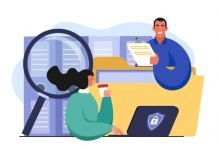Today we are going to answer the question, “what really happens during a cyber attack?” by taking a look at how the Internet works and how it can be attacked. The Internet is nothing more than worldwide computer networks of stations that allow users to connect to each other. In the past, if an attacker wanted to attack one specific computer in the network, he would have to go through the user and try to jam his way through to the information that he needed. This was not only very difficult but also very expensive.
Today however, anyone who wants to can simply send a simple message to the thousands of computers that are connected to the Internet and he will be able to access the data that he needs. Once he has gained access to the targeted information, he can then use any type of software program to delete, alter or even completely destroy data that the user has stored on their system. While it may seem like there is really nothing happening inside the computer, these attacks are actually very serious and they are often times very quick. They can sometimes happen within minutes, which means that the data that is stored can be gone in an instant.
Now that you know what really happens during a cyber attack, we need to take a look at what you can do to prevent it. There are two main types of defenses that are available to you. Some of them are more risky than others but both of them offer some form of protection. Some of the common defenses include installing anti virus software, running up to date patches and maintaining your firewall.
When it comes to preventing a cyber attack, one of the most important things that you can do is to avoid giving out any information that can be used against you. Keep any information that you do not already have to yourself. It is possible that if you are not careful you will hand out personal information that could be used against you. However, if you use common sense and practice safe internet habits, you should be able to avoid attacks altogether.
If you think that you have been attacked, then you should try and isolate the computer that has been attacked. Once the computer is isolated you can do a variety of different things to try and stop the attacks from happening again. First, the IP loggers on the infected machines should all be removed. This log can often contain a wealth of information including the exact URLs that were typed into the browser of the infected machine.
If you find that the IP loggers are still in place then you can use some type of anti spyware or malware removal program to try and locate the logs. Once you have found them they should all be removed from the machine. Next, you should try and remove any programs from your computer that you are sure are causing problems. Some of the most common software tools that hackers use to infect a computer include adware, spyware, Trojans, worms, and others. Removing these unnecessary software pieces from your machine should help to prevent further attacks.
It is also important to try and make sure that you are not downloading any type of file that is harmful to your computer. Hackers often use dangerous downloadable software to carry out their attacks. Even if you think that you are downloading something that is safe, there is always the possibility that it could contain malicious code that can secretly be attached to a variety of files on your system. By not downloading anything that is harmful, you can help to drastically reduce the number of possible attacks.
Finally, the last thing that you can do to try and avoid cyber attacks is to get a good antivirus program. These programs are designed to scan all files on your machine for computer related issues and should detect any suspicious activity. By using one of these antivirus programs, you can get better protection against what really happens during an attack, allowing your machine to run more smoothly and effectively. This will allow you to get back on the internet before the attacks have completely taken over your machine and you’ll have time to get everything back online.








